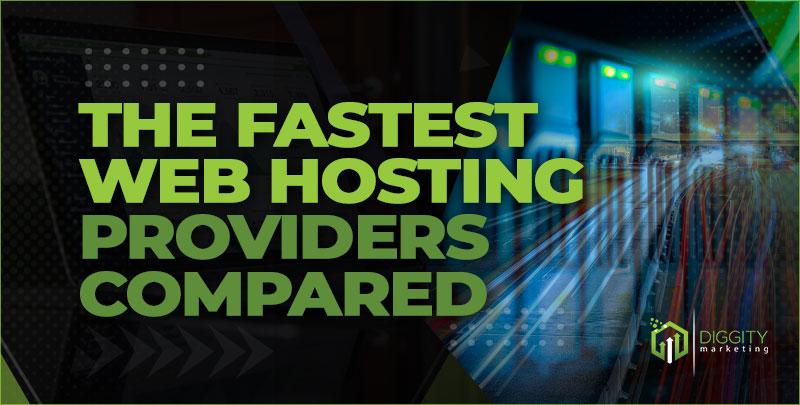When choosing between Shopify and WooCommerce, consider your vision. Shopify offers simplicity and speed for those ready to launch quickly, while WooCommerce provides unmatched flexibility for creative control. Your eCommerce journey starts here—choose the platform that empowers your dreams!
Shopify vs WooCommerce: Which is Better?
In the dynamic world of e-commerce, choosing the right platform can feel like navigating a labyrinth. With countless options at your fingertips, two names consistently rise to the top of the conversation: Shopify and WooCommerce. Each boasts a loyal following and a unique set of features tailored to fulfill the diverse needs of online entrepreneurs. But which platform truly reigns supreme? In this article, we invite you to embark on a journey of discovery as we delve into the strengths and weaknesses of Shopify and WooCommerce. Whether you’re a budding entrepreneur eager to launch your first store or an established business looking to scale, the insights you’ll gain here will empower you to make an informed decision, transforming your e-commerce vision into a thriving reality. Let’s explore the possibilities and uncover which platform can best help you forge your path to success!
Understanding the Basics of Shopify and WooCommerce
When exploring e-commerce solutions, it’s essential to understand the fundamental features and differences between Shopify and WooCommerce. Both platforms have carved out their niches in the online marketplace, catering to various business needs. To make an informed decision, let’s delve into the core attributes of each.
Shopify is a fully hosted e-commerce solution, which means that it takes care of all the technical aspects of running an online store. You don’t need to worry about server management, security updates, or software installations. This user-friendly platform is designed for those who want to get started quickly without a steep learning curve.
Some key features of Shopify include:
- Ease of Use: The intuitive drag-and-drop interface allows users to create and manage their stores effortlessly.
- Payment Gateway Integration: Shopify supports multiple payment options, offering flexibility for customers.
- 24/7 Customer Support: Assistance is always available, ensuring that any issues are promptly addressed.
On the other hand, WooCommerce is a powerful plugin for WordPress that transforms any WordPress site into a fully functional e-commerce store. This option is ideal for those who prefer more control over their online business and are comfortable navigating a bit of technical setup. WooCommerce is open-source, which means you can customize and extend its capabilities as your business grows.
Key aspects of WooCommerce include:
- Flexibility and Customization: With access to thousands of plugins, you can tailor your store to meet specific needs.
- Cost-Effectiveness: The core plugin is free, making it attractive for startups and small businesses.
- SEO-Friendly: Being built on WordPress provides inherent advantages for search engine optimization.
When comparing these platforms, consider the following table summarizing their strengths:
| Feature | Shopify | WooCommerce |
|---|---|---|
| Hosting | Included | Self-hosted |
| Ease of Use | Very High | Moderate |
| Customization | Limited | Extensive |
| Support | 24/7 | Community-Based |
Ultimately, the choice between Shopify and WooCommerce hinges on your business requirements and technical comfort level. For those seeking a hands-off approach, Shopify shines with its ready-to-use features. Conversely, if you desire flexibility and control, WooCommerce offers a robust solution tailored to your vision. By understanding these platforms’ fundamentals, you can align your e-commerce strategy with your business goals.
Exploring the Key Features That Set Them Apart
When comparing Shopify and WooCommerce, it’s essential to delve deeper into the unique features that each platform offers. These characteristics not only influence the usability and functionality of an online store but also shape the overall user experience. Here’s a closer look at what distinguishes these two eCommerce giants.
Ease of Use: One of the most significant factors for any online retailer is how intuitive the platform is. Shopify shines in this regard with its straightforward, user-friendly interface that allows even beginners to set up and manage their online store with ease. In contrast, WooCommerce, being a plugin for WordPress, requires a bit more technical knowledge. While it offers greater flexibility, newcomers may find themselves overwhelmed by the myriad of settings and configurations.
Customization Options: For those who value customization, WooCommerce stands out as a powerhouse. It offers an extensive library of themes and plugins, allowing users to tailor their stores precisely to their needs. Shopify, while providing a selection of beautiful themes, has more limitations when it comes to customization, particularly in terms of altering the source code. This can be a significant consideration for businesses aiming for a unique online presence.
Payment Gateways: Payment processing is critical for any eCommerce platform. Shopify integrates seamlessly with over 100 payment gateways, including its own Shopify Payments, which simplifies transactions. WooCommerce, on the other hand, supports a wide range of payment options, but some may require additional plugins or configurations. This flexibility can be beneficial for businesses that want to provide diverse payment methods to their customers.
| Feature | Shopify | WooCommerce |
|---|---|---|
| Ease of Use | Highly intuitive | Requires technical knowledge |
| Customization | Limited | Extensive options |
| Payment Gateways | 100+ integrated | Variety with plugins |
| Support | 24/7 customer support | Community-driven |
Cost Structure: The pricing models can also play a crucial role in decision-making. Shopify operates on a subscription model, with monthly fees that can add up depending on the features you choose. WooCommerce, however, is free to use, but users may incur costs for hosting, premium themes, and plugins. Understanding the long-term financial commitment required by each platform is vital for budgeting effectively.
Support and Community: When it comes to support, Shopify offers 24/7 assistance, ensuring that users can get help whenever they need it. WooCommerce relies predominantly on community forums and documentation, which can be a double-edged sword—excellent for peer advice but potentially slower for urgent issues. The level of support available can significantly affect the ease of managing your online store.
Ultimately, the choice between Shopify and WooCommerce should align with your specific business needs, technical skills, and long-term goals. Each platform has its strengths and unique features that cater to different types of entrepreneurs. Understanding these key differentiators will empower you to make an informed decision that best suits your eCommerce vision.
Evaluating Pricing Structures for Long-Term Success
When it comes to choosing between Shopify and WooCommerce, one of the most critical factors to consider is how their pricing structures will impact your long-term success. Both platforms offer distinct advantages and potential pitfalls in terms of costs, and understanding these can help you make a more informed decision.
Shopify operates on a subscription model, which can simplify budgeting. Users pay a monthly fee that covers hosting, security, and various features. However, this pricing can escalate quickly when you factor in:
- Transaction fees (if you’re not using Shopify Payments)
- Premium apps for added functionality
- Third-party themes and customizations
Ultimately, while the initial price may seem attractive, the cumulative costs can become significant, especially for growing businesses that need more advanced features over time.
In contrast, WooCommerce is a free plugin for WordPress, which means you have more control over your expenses. While you will need to handle hosting and security separately, this flexibility allows for tailored solutions that can fit various budgets. Key considerations include:
- Hosting costs can vary widely based on your choice
- Many powerful plugins for additional features are available, some free and some premium
- You can customize your store without being locked into a specific pricing tier
This model empowers you to build a store that aligns with your specific needs without incurring unnecessary costs, making WooCommerce a strong contender for long-term scalability.
To further illustrate the differences in pricing, consider the following table:
| Feature | Shopify | WooCommerce |
|---|---|---|
| Monthly Subscription | Starts at $29 | Free (but requires hosting) |
| Transaction Fees | Yes (unless using Shopify Payments) | No (unless using a payment gateway with fees) |
| Customization Flexibility | Limited by subscription plan | Highly customizable |
| Third-Party Integrations | Many available, often at extra cost | Wide range of free and paid options |
In assessing which platform aligns with your financial strategy, consider not just the immediate costs but how those costs will scale as your business grows. For business owners with plans for expansion, WooCommerce’s flexible pricing and customization options can provide a pathway to greater profitability. On the other hand, Shopify offers an all-in-one solution that may appeal to those who prefer simplicity over complexity.
Ultimately, the choice between Shopify and WooCommerce hinges on your specific needs, growth ambitions, and willingness to navigate the intricacies of each platform’s pricing. Evaluating these structures carefully can lead to a more sustainable and successful online business in the long run.
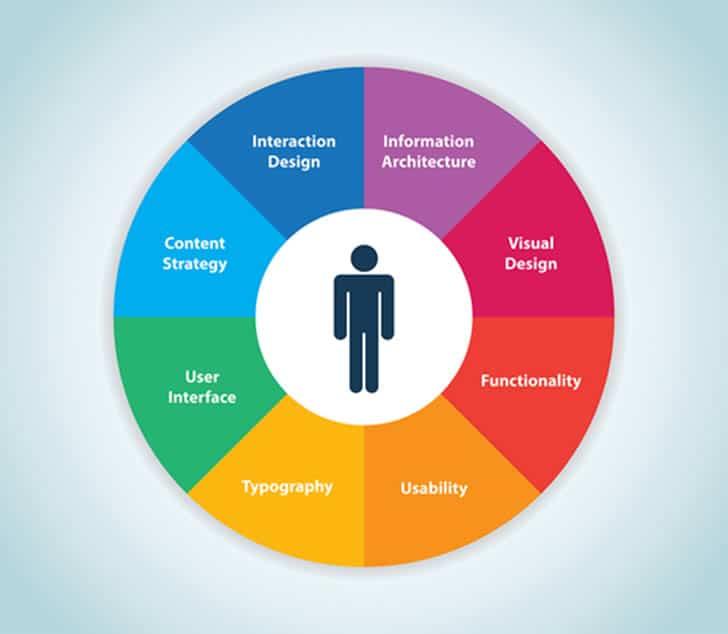
User Experience: Which Platform is More Intuitive
When it comes to choosing between Shopify and WooCommerce, the intuitiveness of each platform can significantly impact your eCommerce journey. A seamless user experience can save you time and frustration, allowing you to focus on growing your business rather than getting lost in complex settings.
Shopify is renowned for its user-friendly interface. From the moment you sign up, you’re greeted with a clean dashboard that simplifies navigation. The platform is built for those who may not have extensive technical knowledge, allowing even the least tech-savvy users to quickly set up their online store. Key intuitive features include:
- Drag-and-drop store builder
- Step-by-step setup wizard
- Clear categorization of settings
- Integrated payment and shipping options
On the other hand, WooCommerce, while powerful and highly customizable, has a steeper learning curve. It operates as a plugin for WordPress, which means you need to be familiar with the WordPress environment to get the most out of it. However, for those who are already comfortable with WordPress, WooCommerce can feel equally intuitive. Its advantages include:
- Endless customization options
- Robust community support and documentation
- Flexibility in design and functionality
To better understand how each platform stacks up in terms of user experience, consider the following comparison:
| Feature | Shopify | WooCommerce |
|---|---|---|
| Setup Time | Quick and easy | Moderate; depends on WordPress familiarity |
| User Interface | Modern and sleek | WordPress-style; may require some learning |
| Customization | Limited to themes and apps | Highly customizable with code access |
| Support | 24/7 support available | Community forums and documentation |
Ultimately, your choice may depend on your specific needs and technical comfort level. If you value a straightforward setup and don’t want to deal with the complexities of code, Shopify could be your best bet. Conversely, if you desire complete control and customization options, WooCommerce might be more aligned with your vision. Understanding these nuances will empower you to make an informed decision that enhances your eCommerce experience.
Customization Options: Tailoring Your Store to Stand Out
When it comes to creating an online store that reflects your brand identity, both Shopify and WooCommerce offer extensive customization options. These platforms empower entrepreneurs to design unique shopping experiences tailored specifically to their audience. However, the degree of flexibility and ease of use varies significantly between the two.
Shopify is renowned for its user-friendly interface, allowing users to customize their storefronts with a simple drag-and-drop editor. Users can choose from a wide array of professionally designed themes that can be easily modified to suit their aesthetic preferences. Some of the notable customization features include:
- Theme Customization: Adjust colors, fonts, and layouts with no need for coding knowledge.
- Apps & Integrations: Enhance functionality with thousands of apps available in the Shopify App Store.
- Custom Domains: Create a unique web address that reflects your brand.
On the other hand, WooCommerce offers unparalleled flexibility, especially for those who are comfortable with coding and want complete control over their store. As a WordPress plugin, it allows for deep integration with various themes and plugins, making it perfect for businesses looking to build a completely bespoke shopping experience. Key features include:
- Extensive Theme Options: Choose from thousands of WordPress themes or create your own.
- Custom Post Types: Tailor product pages and categories to fit your branding.
- Plugin Compatibility: Integrate additional functionalities through a myriad of plugins available in the WordPress ecosystem.
To summarize the differences more clearly, consider the following table:
| Feature | Shopify | WooCommerce |
|---|---|---|
| User-Friendliness | High | Moderate to High |
| Theme Customization | Simple | Extensive |
| App Integrations | Curated Apps | Plugins from WordPress |
| Control Over Code | Limited | Full Control |
Ultimately, the choice between Shopify and WooCommerce hinges on your specific needs and level of expertise. If you seek a straightforward, hassle-free setup with enough flexibility to stand out, Shopify might be your best bet. Conversely, if you envision a highly customized platform and have the technical know-how, WooCommerce could be the ideal solution. No matter which route you choose, the potential to shape a distinctive online presence awaits.

Scalability and Growth Potential for Your Business
When considering a platform for your e-commerce business, scalability is a critical factor that can dictate your long-term growth trajectory. Both Shopify and WooCommerce offer unique advantages in this regard, making them suitable for a variety of business models. Understanding how each platform scales can empower you to make a more informed decision.
Shopify stands out for its ease of use and built-in scalability features. As a fully hosted solution, Shopify manages the backend complexities, allowing you to focus on sales and marketing. Here are some key points about Shopify’s scalability:
- Automatic Updates: Shopify automatically updates its software, ensuring that your online store is always equipped with the latest features and security enhancements.
- High Traffic Handling: Shopify can handle spikes in traffic seamlessly, making it ideal for businesses that experience seasonal sales surges.
- Enterprise Solutions: With plans like Shopify Plus, larger businesses can leverage even more robust features tailored to their needs.
On the other hand, WooCommerce, being a WordPress plugin, offers unparalleled customization and flexibility that can also support growth. While it requires a bit more technical know-how, the potential for scalability is substantial:
- Custom Development: You can tailor your store’s functionalities to meet your specific requirements, allowing for unique growth strategies.
- Plugin Ecosystem: With thousands of plugins available, you can easily extend your store’s capabilities as your business grows.
- Hosting Freedom: You can choose your hosting provider, scaling resources up or down based on your business demands.
To provide a clearer comparison of scalability features, consider the following table:
| Feature | Shopify | WooCommerce |
|---|---|---|
| Ease of Scaling | High | Moderate (varies by hosting) |
| Customization | Limited | Extensive |
| Traffic Handling | Automatic | Dependent on Hosting |
| Cost of Scaling | Predictable | Variable |
Ultimately, the choice between Shopify and WooCommerce may hinge on your vision for scalability. If you expect rapid growth and prefer a hands-off approach to backend management, Shopify is an excellent choice. However, if your strategy involves extensive customization and you possess the technical expertise to manage a WordPress site, WooCommerce might be your winning ticket. Assess your business model, growth objectives, and the resources you are willing to invest to ensure you choose the platform that aligns with your aspirations.

SEO Capabilities: Driving Traffic to Your Online Store
In the world of e-commerce, driving traffic to your online store is essential for success. Both Shopify and WooCommerce offer distinct SEO capabilities that can significantly influence your store’s visibility in search engine results. Leveraging the right platform can make all the difference in attracting visitors and converting them into loyal customers.
Shopify is known for its user-friendly interface and built-in SEO features, making it easy for newcomers to optimize their online stores. Some of its key SEO capabilities include:
- Customizable Title Tags and Meta Descriptions: Tailor your store’s titles and descriptions to improve click-through rates.
- Clean URL Structure: Shopify automatically creates SEO-friendly URLs that are easy for search engines to crawl.
- Mobile Optimization: With responsive themes, Shopify ensures that your store looks great on all devices, boosting your mobile search rankings.
On the other hand, WooCommerce provides more extensive customization options for SEO, appealing to those with technical expertise. Key features include:
- SEO Plugins: WooCommerce seamlessly integrates with powerful plugins like Yoast SEO, allowing for advanced optimization strategies.
- Full Control over URL Structure: Customize permalinks to enhance your SEO strategy.
- Content Marketing Integration: Easily create engaging blog content to drive organic traffic and improve your site’s authority.
When comparing the two, consider how their SEO capabilities align with your business goals. To illustrate the differences, here’s a brief comparison:
| Feature | Shopify | WooCommerce |
|---|---|---|
| SEO-Friendly Design | Yes, built-in | Dependent on theme |
| Customization Flexibility | Limited | Extensive |
| Plugin Integration | Less variety | Wide range available |
| Ease of Use | Very user-friendly | Requires some technical knowledge |
Ultimately, the choice between Shopify and WooCommerce comes down to your specific needs and expertise. Both platforms offer powerful SEO features, but your ability to harness these capabilities will dictate the level of traffic you can drive to your online store. Embrace the features that resonate with your business strategy, and watch your online presence flourish.
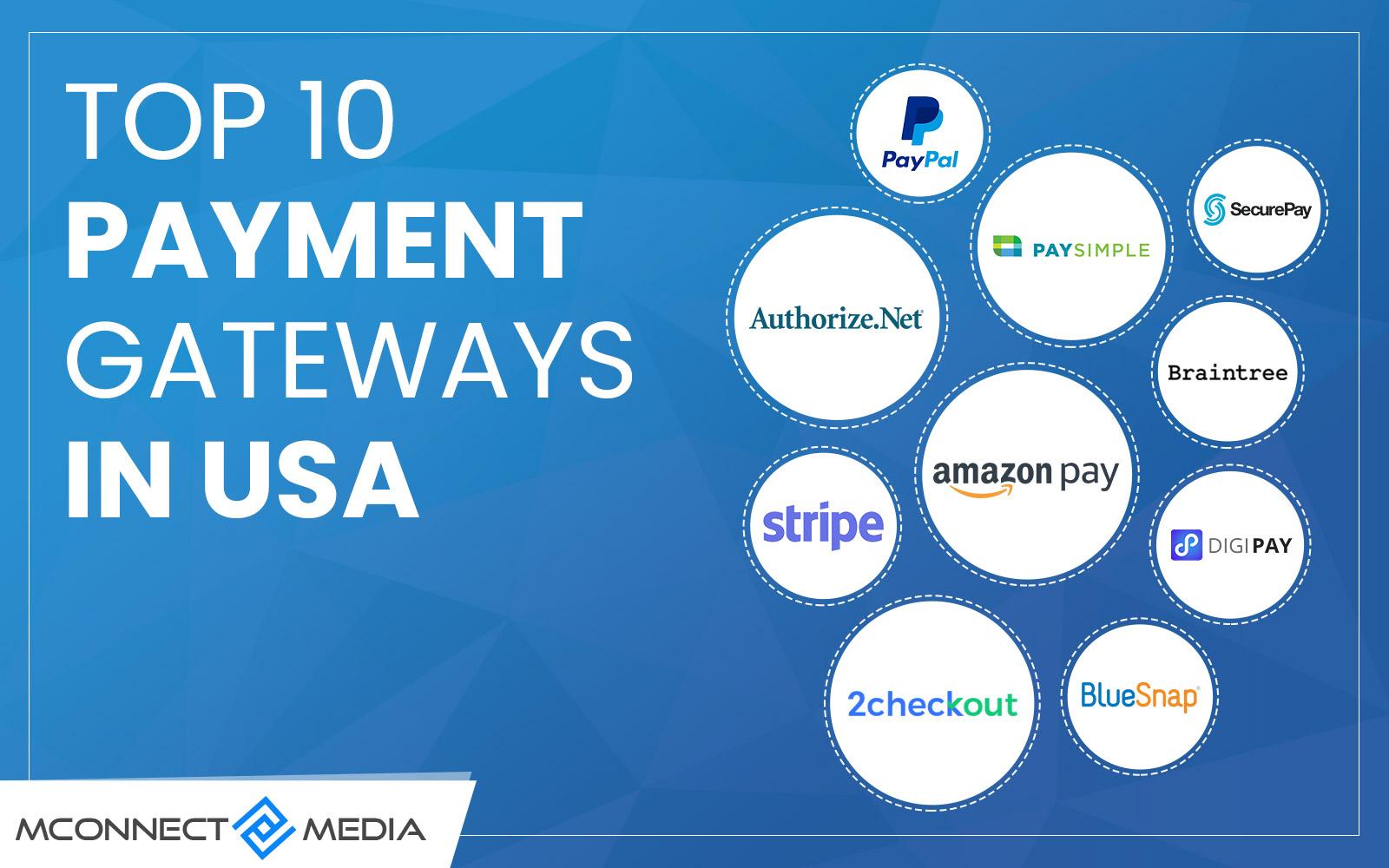
Payment Gateways: Flexibility and Security Considerations
When choosing between Shopify and WooCommerce, the capabilities of payment gateways play a crucial role in the overall effectiveness of your eCommerce setup. Both platforms offer a variety of payment options, but their flexibility and security features differ, making it essential to analyze how these aspects align with your business needs.
Shopify is renowned for its seamless integration with numerous payment gateways. It includes its own native payment solution, Shopify Payments, which simplifies transaction processes and reduces fees. Additionally, the platform supports various third-party gateways, allowing merchants to choose options that best fit their customers’ preferences. This flexibility empowers businesses to cater to a diverse audience, providing familiar payment methods such as:
- PayPal
- Stripe
- Square
- Amazon Pay
- Apple Pay
On the other hand, WooCommerce offers a robust framework that allows extensive customization of payment gateways. With WooCommerce, merchants can tap into a vast array of plugins to integrate both popular and niche payment solutions. This level of customization is a double-edged sword; while it provides flexibility, it also requires the merchant to take on the responsibility of ensuring that the chosen gateways comply with security standards.
Security is paramount in eCommerce transactions, and both platforms prioritize safeguarding customer data. Shopify includes built-in SSL certification, ensuring that all transactions are encrypted and secure. Additionally, Shopify complies with the Payment Card Industry Data Security Standard (PCI DSS), which is crucial for protecting sensitive payment information.
Conversely, WooCommerce’s security largely relies on the hosting provider and the additional security plugins you choose to implement. While WooCommerce can be secured effectively, it requires an extra layer of diligence from the merchant to regularly update plugins, monitor for vulnerabilities, and maintain compliance with security standards.
| Feature | Shopify | WooCommerce |
|---|---|---|
| Payment Options | Multiple integrated options, Shopify Payments | Highly customizable with plugins |
| Security | Built-in SSL and PCI compliant | Depends on hosting & plugins |
| Transaction Fees | Fees may apply for third-party gateways | Variable based on gateways used |
Ultimately, the choice between these two platforms hinges on your business’s specific needs. If you prioritize convenience and security with minimal management, Shopify may be the ideal choice. However, if you seek unparalleled customization and control over your payment processes, WooCommerce could provide the flexibility you desire. Evaluate the strengths of each platform’s payment gateway offerings to find the perfect fit for your eCommerce vision.

Support and Community: Which Platform Has You Covered
When it comes to e-commerce platforms, the strength and responsiveness of their support systems can significantly influence your success. Both Shopify and WooCommerce offer distinct advantages when it comes to community and support, but they cater to different types of users and needs.
Shopify provides a robust, centralized support system. With 24/7 customer service via chat, email, and phone, you can rest assured that help is just a message away, regardless of your time zone. This is particularly beneficial for new entrepreneurs who might encounter hurdles late at night or during crucial business hours. Additionally, Shopify’s Help Center is filled with tutorials, guides, and a community forum that allows you to connect with other users facing similar challenges.
WooCommerce, on the other hand, thrives on a vibrant community of developers, designers, and users. As a WordPress plugin, WooCommerce benefits from the extensive WordPress ecosystem, which includes countless forums, blogs, and online courses. If you’re the type who enjoys diving into DIY solutions, WooCommerce’s community can provide assistance through:
- Community Forums: Engage with fellow users for advice and tips.
- Documentation: Comprehensive guides that help you navigate complexities.
- Third-party Support: A plethora of agencies ready to offer specialized help.
In terms of direct support, WooCommerce offers limited support for the free version, with more extensive help available through paid extensions. This means that while the community can provide a wealth of information, users may find that timely assistance can sometimes be a challenge. On the other hand, Shopify’s built-in support offers reassurance, especially for those who might not be tech-savvy.
When comparing the two, consider your comfort level with technology. If you prefer having a dedicated support team that can quickly address your issues, Shopify might be your best bet. Conversely, if you are well-versed in WordPress and enjoy leveraging community knowledge, then WooCommerce will likely feel like home.
| Feature | Shopify | WooCommerce |
|---|---|---|
| 24/7 Support | ✔️ | ❌ (Limited) |
| Community Forums | ✔️ | ✔️ |
| Documentation | ✔️ | ✔️ |
| Third-party Support | ✔️ | ✔️ |
Ultimately, the choice between Shopify and WooCommerce may hinge on whether you value immediate support or community-driven assistance. Both platforms have their merits, but your personal preference and business model will dictate which option aligns best with your goals. Make the leap, knowing that supportive resources are available no matter which path you choose.

Insights on Hosting: Shopify’s Simplicity vs WooCommerce’s Flexibility
When it comes to choosing an e-commerce platform, the decision often boils down to two heavyweights: Shopify and WooCommerce. Each has its distinct advantages, appealing to different kinds of users. Shopify is celebrated for its user-friendly interface and the seamless hosting experience it offers. With Shopify, you can effortlessly set up an online store without any technical knowledge. The platform takes care of all the hosting logistics, allowing you to focus on what truly matters—growing your business.
On the other hand, WooCommerce provides a more flexible approach to e-commerce. Built on WordPress, it allows users to customize their store to an incredible degree. For those with coding skills or a willingness to learn, WooCommerce offers a plethora of plugins and themes that can tailor your online shop to fit your exact vision. This flexibility is a double-edged sword, though, as it often comes with the need for more hands-on management and technical knowledge.
Consider some of the core differences that set these platforms apart:
- Ease of Use: Shopify is a hosted solution, making setup quick and straightforward. WooCommerce requires a self-hosted WordPress site, which can be daunting for novices.
- Customization: WooCommerce offers extensive customization options through themes and plugins, whereas Shopify has limitations, albeit with more consistent performance.
- Cost: Shopify has a monthly fee structure that can add up, while WooCommerce itself is free, with costs mainly coming from hosting, themes, and plugins.
- Support: Shopify includes 24/7 support as part of its service, while WooCommerce relies on community forums and third-party support.
| Feature | Shopify | WooCommerce |
|---|---|---|
| Setup Time | Quick and easy | Requires time and effort |
| Customization | Limited but user-friendly | Highly customizable |
| Monthly Costs | Starts at $29 | Hosting + Plugins |
| Technical Support | 24/7 support | Community-based |
The choice between Shopify and WooCommerce truly comes down to your specific needs and preferences. If you’re looking for an all-in-one solution where you can launch your store quickly and without fuss, Shopify is undoubtedly the way to go. However, if your vision requires a tailored approach and you have the expertise to manage it, WooCommerce could be your best friend, offering you limitless possibilities to grow and evolve your online presence.

Marketing Tools: Enhancing Your Sales Strategy
As e-commerce continues to evolve, leveraging the right marketing tools is essential for optimizing your sales strategy. Both Shopify and WooCommerce offer unique features that can elevate your business, but understanding how they enhance your marketing capabilities is crucial for success.
Shopify comes equipped with a plethora of built-in marketing tools, enabling merchants to manage their campaigns directly from the platform. With features like:
- SEO optimization: Built-in tools help boost your store’s visibility on search engines.
- Email marketing: Automate your campaigns with Shopify Email, allowing for targeted promotions.
- Social media integrations: Seamlessly connect with platforms like Facebook and Instagram to drive traffic and sales.
On the other hand, WooCommerce, being a plugin for WordPress, leverages the power of content marketing and SEO that WordPress is renowned for. Some advantages of WooCommerce include:
- Customizability: With countless plugins, you can tailor your marketing strategy to fit your specific needs.
- Content-driven marketing: Build a blog alongside your store to engage customers and improve SEO.
- Advanced analytics: Get insights into customer behavior to enhance targeting and conversion rates.
To help you compare the marketing features of both platforms, here’s a quick overview:
| Feature | Shopify | WooCommerce |
|---|---|---|
| SEO Tools | Built-in | Plugin-based |
| Email Marketing | Shopify Email | Various Plugins |
| Social Media Integration | Yes | Yes |
| Content Marketing | Limited | Robust |
Ultimately, the choice between Shopify and WooCommerce should align with your business goals and marketing strategy. Shopify empowers you with an all-in-one solution, perfect for those seeking simplicity, while WooCommerce offers extensive flexibility for those looking to leverage content-driven marketing. Each platform can support your sales strategy, so consider your unique needs when making your decision.

Real-World Success Stories: Lessons from Top Brands
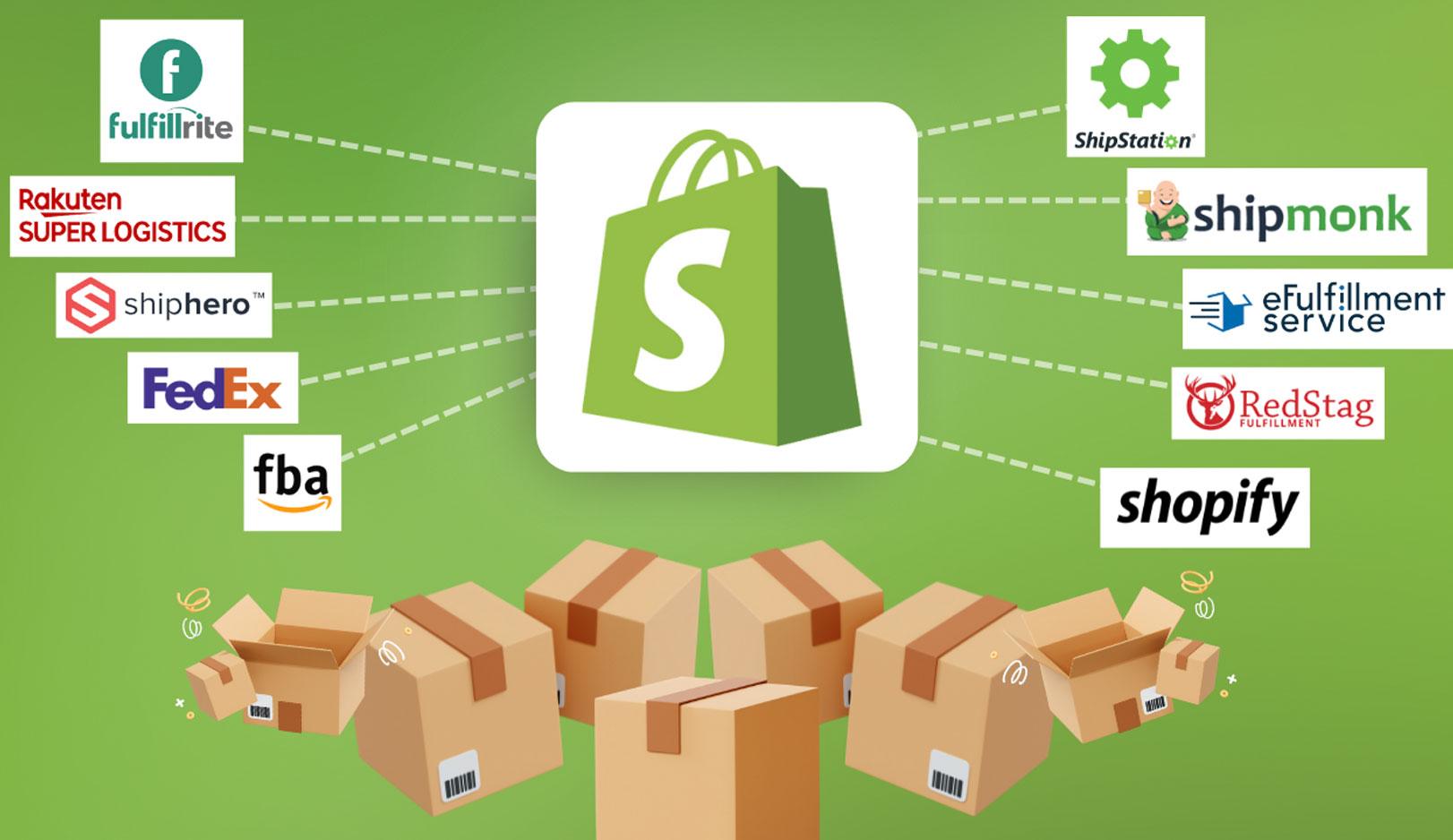
Making the Right Choice for Your Unique Business Needs
Choosing between Shopify and WooCommerce is more than just a decision on a platform; it’s about selecting a tool that aligns with your business goals, operational needs, and customer expectations. Each option has its unique strengths and weaknesses, making it essential to evaluate what truly matters to your unique business model.
Shopify is an all-in-one e-commerce solution that shines for its ease of use and robust support. It provides a seamless experience for entrepreneurs who may not have extensive technical skills. With Shopify, you benefit from:
- Hosted Solution: No need to worry about hosting, security, or updates.
- Responsive Design: Beautiful and mobile-optimized templates enhance user experience.
- Comprehensive Support: 24/7 customer service to help you troubleshoot issues.
- App Ecosystem: A rich marketplace of apps to extend functionality easily.
On the other hand, WooCommerce offers unmatched flexibility and control for those who want to customize their store extensively. Built on WordPress, it integrates seamlessly with the world’s most popular content management system. Consider these key aspects:
- Customization: Extensive theme and plugin options allow for tailored solutions.
- Cost-Effective: The plugin is free, though you may incur hosting costs and other add-ons.
- SEO Advantages: WordPress’s inherent SEO capabilities can help you rank better in search engines.
- Ownership: Full control over your data and site functionality without restrictions.
When assessing your business needs, consider creating a table to visualize key criteria and how each platform measures up:
| Criteria | Shopify | WooCommerce |
|---|---|---|
| Ease of Use | High | Moderate |
| Customization | Limited | Extensive |
| Cost | Monthly Fees | Free Plugin + Hosting |
| Customer Support | 24/7 | Community & Forums |
| SEO Features | Good | Excellent |
Ultimately, the right choice hinges on your specific requirements. If you prioritize simplicity and speed to market, Shopify may be your best bet. Conversely, if you envision a highly customized store with a solid content strategy, WooCommerce could be the ideal platform. Remember, the decision should resonate with your long-term vision, scalability potential, and the unique demands of your target audience.
Consider conducting a trial run or exploring demos of both platforms. This hands-on experience can provide invaluable insights into the user interface and functionality that aligns with your business aspirations. Trust your instincts, and let your entrepreneurial spirit guide you to the perfect e-commerce solution.
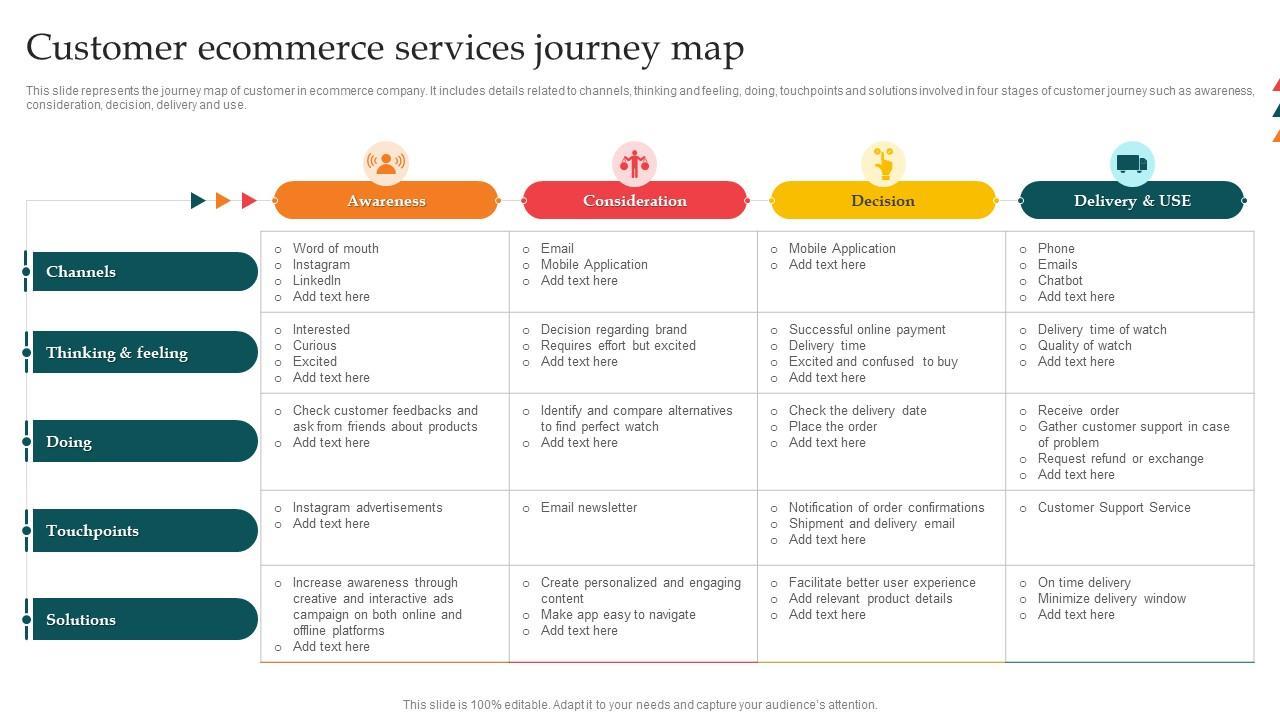
Conclusion: Empowering Your E-Commerce Journey
Embarking on your e-commerce journey is an exhilarating adventure filled with endless possibilities. Choosing the right platform can significantly shape your experience, whether you’re a budding entrepreneur or a seasoned business owner. Both Shopify and WooCommerce offer unique advantages, but understanding how to leverage these tools can empower you to build a thriving online store.
Scalability and Flexibility: One of the primary advantages of both platforms is their ability to grow with your business. Shopify provides a seamless environment for scaling up, with built-in features designed for rapid growth. On the other hand, WooCommerce’s customization options allow you to tailor your store to meet specific needs. You can:
- Choose the scale: from small startups to large enterprises.
- Integrate various plugins: to enhance functionality without compromising performance.
- Adapt design: to fit your brand’s identity effectively.
Cost-Effectiveness: Budget is often a significant consideration when launching an e-commerce store. Shopify offers a subscription model, providing straightforward pricing and predictable costs. Conversely, WooCommerce is a free plugin for WordPress, making it an attractive option for those seeking to minimize initial investments. However, remember that additional costs for hosting, themes, and plugins can add up over time. Here’s a brief cost comparison:
| Feature | Shopify | WooCommerce |
|---|---|---|
| Base Cost | Starts at $29/month | Free (hosting fees apply) |
| Transaction Fees | 2.9% + 30¢ per transaction | No fees (depends on payment gateway) |
| Customization | Limited by themes | Highly customizable |
User Experience: A user-friendly interface is vital for both you and your customers. Shopify excels in offering an intuitive setup process and an organized dashboard, making it easy for anyone to start selling. WooCommerce, while requiring a bit more technical knowledge, allows for greater control over every aspect of your store. This balance of usability and customization ensures that you can effectively engage your audience while simplifying your workflow.
Community and Support: Both platforms boast vibrant communities and extensive support networks. Shopify provides 24/7 customer service, while WooCommerce benefits from an extensive online community forum. Engaging with these resources can provide invaluable insights, helping you overcome challenges and discover best practices. Utilizing expert advice and real user experiences can be crucial to your success.
Your e-commerce journey doesn’t have to be daunting. Whether you choose Shopify or WooCommerce, the key lies in aligning the platform’s strengths with your business goals. Embrace the tools at your disposal, invest time in learning, and watch your online store flourish as you connect with customers around the globe.
Frequently Asked Questions (FAQ)
Q&A: Shopify vs. WooCommerce – Which is Better?
Q1: What are Shopify and WooCommerce?
A1: Shopify and WooCommerce are two of the most popular e-commerce platforms available today, each offering unique features that cater to different needs. Shopify is a fully-hosted, user-friendly platform that allows entrepreneurs to create online stores without needing advanced technical skills. On the other hand, WooCommerce is a plugin for WordPress that transforms a regular website into a fully functional e-commerce store, offering extensive customization options for those who seek more control over their online presence.
Q2: Which platform is easier for beginners?
A2: For beginners, Shopify shines with its intuitive interface and straightforward setup process. You can have your store up and running in no time, thanks to its drag-and-drop functionality and built-in tools. If you’re looking for a seamless entry into the e-commerce world, Shopify is like a welcoming friend guiding you every step of the way. However, if you’re familiar with WordPress and are willing to invest time in learning, WooCommerce provides incredible flexibility and power, albeit with a steeper learning curve.
Q3: How do the costs compare between Shopify and WooCommerce?
A3: When considering costs, it’s essential to think beyond just the initial price. Shopify operates on a subscription model with monthly fees that include hosting, security, and support. While it may seem straightforward, these costs can add up. WooCommerce, on the other hand, is free to use, but you’ll need to account for expenses such as hosting, domain registration, and additional plugins for enhanced functionality. If you have a tight budget and the technical know-how, WooCommerce can be a cost-effective solution, but be prepared for potential hidden costs.
Q4: Which platform offers better customization options?
A4: Customization is where WooCommerce takes the lead. Thanks to the vast array of themes and plugins available for WordPress, you have nearly limitless possibilities to create a unique online store that reflects your brand’s identity. From advanced SEO tools to complex shipping options, the flexibility of WooCommerce allows you to tailor your store to meet specific business needs. Shopify, while offering a variety of templates, has limitations when it comes to customization. However, it does offer many apps that can enhance functionality without delving into code.
Q5: How do Shopify and WooCommerce handle scalability?
A5: Scalability is crucial for any growing business. Shopify is designed with scalability in mind, allowing you to easily upgrade your plan as your business grows. It can handle significant traffic without you having to worry about server management or downtime. WooCommerce can also be scaled, but it requires more hands-on management, including optimizing your hosting environment and ensuring your site can handle increased traffic or transactions. If you’re aiming for rapid growth and want a hassle-free experience, Shopify might be the better choice.
Q6: Which platform offers better support?
A6: Shopify excels in customer support, offering 24/7 assistance through various channels, including live chat, email, and phone. Their support team is there to help you navigate challenges, giving you peace of mind as you build your business. WooCommerce, while offering a wealth of resources and community forums, relies more on community support, which can be hit or miss. For entrepreneurs who value quick and reliable support, Shopify is undoubtedly the more reassuring option.
Q7: Ultimately, which platform is better for my business?
A7: The choice between Shopify and WooCommerce ultimately hinges on your specific needs and preferences. If you’re looking for ease of use, excellent support, and a platform that grows with you, Shopify is the way to go. However, if you prioritize customization, control, and budget flexibility, WooCommerce might be your best bet. Remember, both platforms have empowered countless entrepreneurs to turn their dreams into reality. Whichever you choose, know that you’re taking a pivotal step towards building your online empire! Embrace the journey, and let your passion drive your success!
In Conclusion
As we reach the conclusion of our exploration into the world of e-commerce platforms, it’s clear that both Shopify and WooCommerce offer unique advantages tailored to different business needs. Choosing between them isn’t just about features or pricing; it’s about aligning the platform with your vision, values, and growth aspirations.
If you dream of a streamlined, user-friendly experience that lets you focus on your brand without getting bogged down in technical details, Shopify might be your perfect ally. On the other hand, if customization and flexibility resonate more with your entrepreneurial spirit, WooCommerce could empower you to create the online store of your dreams.
Ultimately, the best choice is the one that aligns with your goals and empowers you to unleash your creativity. Remember, every great business starts with a decision, and today, you have the tools at your fingertips to make that decision count. Embrace your journey in the e-commerce landscape, harness the power of technology, and let your passion drive you forward.
Whichever path you choose, believe in your potential, stay adaptable, and know that your success story is just beginning. Let’s take that leap together and turn your vision into reality!


